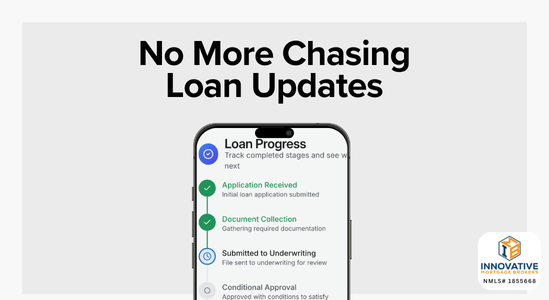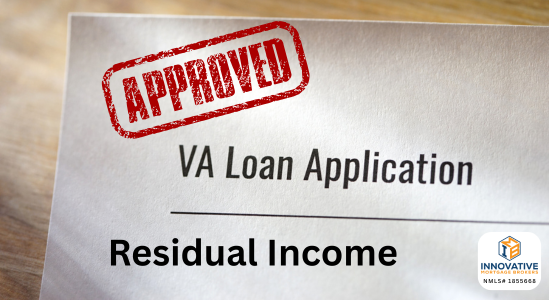Our new portal lets you securely check progress, milestones, and next steps anytime you want…
Home Inspection Reports – Should you Consider One?

You have many big decisions when buying a home, including whether you’ll pay for a home inspection.
The good news is your lender won’t require it. While that’s good news and could save you money, you should decide for yourself if it’s worth it, as 99% of the time, it’s well worth the cost.
Here’s everything you must know about the home inspection.
What is a Home Inspection?
An inspection is conducted by a professional inspector who looks at the home from top to bottom, determining its condition. The inspector’s job is to look for things wrong with the home, including things you might not see with your naked eye.
While it’s not required, it can give you a better idea of what you’re buying.
If the inspector finds major issues with the home, you may want to rethink your decision or discuss the problems with the seller. We’ll discuss your options below.
The bottom line is that an inspection, while it costs around $500 or so, will make you a more informed buyer and could save you thousands of dollars, maybe even tens of thousands in the long run if something is wrong with the home.
How an Inspection Differs from an Appraisal
A home inspection and a home appraisal sound identical, but they are very different.
The appraiser’s job is to determine the home’s value. The appraiser looks at the home’s overall condition, but he doesn’t look at the nitty-gritty details an inspector does. Instead, the appraiser ensures the home is safe, sound, secure, and worth at least as much as you offered to pay.
On the other hand, the inspection looks further into the home’s condition and inner workings. So the inspection report will tell you things like the home has mold or the roof needs replacing.
How to get a Home Inspection
You are responsible for scheduling the home inspection and might also want to be present for it.
Work with the seller to determine the days and times they can give you access to the house to have the inspection completed. Schedule it with a reputable inspector, and plan to be there.
It’s best to complete the inspection within the first ten days of signing the purchase contract. This allows you enough time to make crucial decisions before you’re too invested in the process.
If you are with the inspector while he does the inspection, you’ll know what’s wrong with the home when he finds it. If not, you’ll receive a lengthy report you can review to determine the home’s condition.
How to Handle a ‘Bad Inspection’
If you receive an inspection report with major issues, it can change your mind about the purchase, but you signed a contract; now what?
Fortunately, you have a few options.
Add an Inspection Contingency to your Contract
Before you sign the purchase contract, consider adding a home inspection contingency. This allows you the chance to back out of the sale if the inspector finds major issues with the home.
This is the easiest (and least expensive) way to get out of the sale. Just make sure you have everything completed and a decision made within the timeframe allowed by the contingency.
Some sellers may not allow a contingency, but this should be a red flag. If they know their home will pass the inspection, they shouldn’t mind the contingency because they know you won’t need it. However, if they balk, it could be a sign that they know the house won’t pass the inspection.
Work with the Seller
If you don’t have an inspection contingency, or you do but still want to buy the home, you may work something out with the seller.
Some sellers will automatically agree to repair the issues, especially if they know they’ll lose the sale. Not all issues will be significant enough for a seller to agree to fix them, though. Have a number in mind that you’re willing to cover yourself, and talk to the seller. If they won’t fix anything, see if the repair cost will exceed your threshold. If it does, you may consider walking away from the sale.
Have everything in writing if you decide to have the seller fix the home. This way, you have something to go back to when you do the final walk-through. Also, ask for paid receipts or proof of the work being done. If it’s not done to your specifications, you can delay the purchase.
Walk Away from the Sale
It’s not something anyone wants to consider after falling in love with a home and going through the sales contract process, but you might walk away from the home.
If the seller isn’t willing to fix the issues or credit you for the cost at the closing, you might walk away from the sale.
However, keep this in mind. You will likely lose your earnest money if you walk away from the sale and don’t have a home inspection contingency on your contract. This is the money you put down in earnest of buying the home. On the other hand, if you back out of the legal contract, the seller can keep the funds.
Do the math to determine if it’s worth losing the earnest money or paying the cost of the repairs. If the repairs are extensive, chances are it’s worth walking away from it.
Final Thoughts
A home inspection report is an excellent investment if you’re buying a home. Since buying a home is likely one of the most significant investments you’ll make in your lifetime, it’s essential to know what you’re buying.
An appraisal and the seller’s word often aren’t enough, especially if there are major issues with the home. Yes, you gamble some money to pay for an inspection, but if there are major issues with the home, you’ll be much happier losing $500 for the inspection versus hundreds of thousands of dollars buying a bad home.




